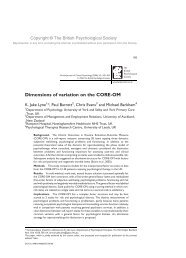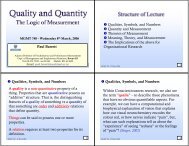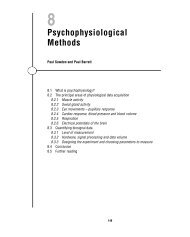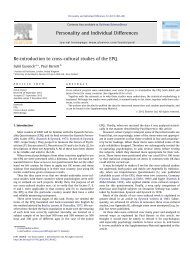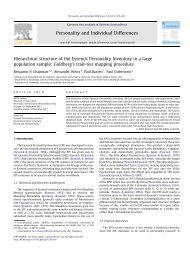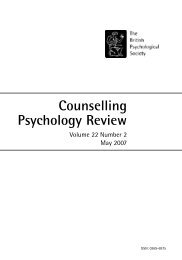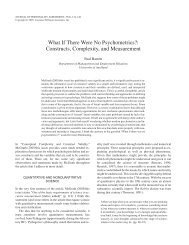Evidence-based IO psychology
Evidence-based IO psychology
Evidence-based IO psychology
You also want an ePaper? Increase the reach of your titles
YUMPU automatically turns print PDFs into web optimized ePapers that Google loves.
It can be difficult to achieve a balance between promoting a profession while at the same time<br />
acknowledging its limitations as clients may find this unnerving or see it as a sign of competence.<br />
I–O psychologists are especially challenged because other organizational consultants outside the<br />
discipline can be extremely bullish about their products and services despite their own absence<br />
of evidence. As skepticism is a key ingredient of evidence‐<strong>based</strong> practice, its limited popularity in<br />
I–O <strong>psychology</strong> is something of a barrier. One way this can be overcome is to remind ourselves<br />
that skepticism is fundamental to scientific inquiry and to any area of practice <strong>based</strong> on science.<br />
It also has the potential to clearly differentiate us from other organizational practitioners and<br />
consultants, particularly if the discipline supports practice through systematic reviews, evidence<strong>based</strong><br />
guidelines, and practice‐oriented research that contribute to more effective practice.<br />
A fourth barrier concerns the politics of evidence in organizations. Power and politics are<br />
fundamental to decision making and also surround the identification and use of evidence in<br />
organizations. Senior leaders may feel they have the right or even responsibility to make<br />
decisions <strong>based</strong> on their experience and judgment that seem to fly in the face of the available<br />
evidence. The need to be explicit in evidence‐<strong>based</strong> decision making means that those with<br />
vested interests in a particular course of action may find it more difficult to hide such interests.<br />
In general, an evidence‐<strong>based</strong> approach may prove challenging particularly in organizations with<br />
highly political cultures. Although it is impossible to remove politics from evidence and decision<br />
making, evidence‐<strong>based</strong> approaches do at least offer the possibility of making clearer<br />
distinctions among politics, values, interests, and other forms of information such as research<br />
evidence. The more decision makers are held accountable for their decisions, the more likely<br />
they are to welcome such distinctions.<br />
9



